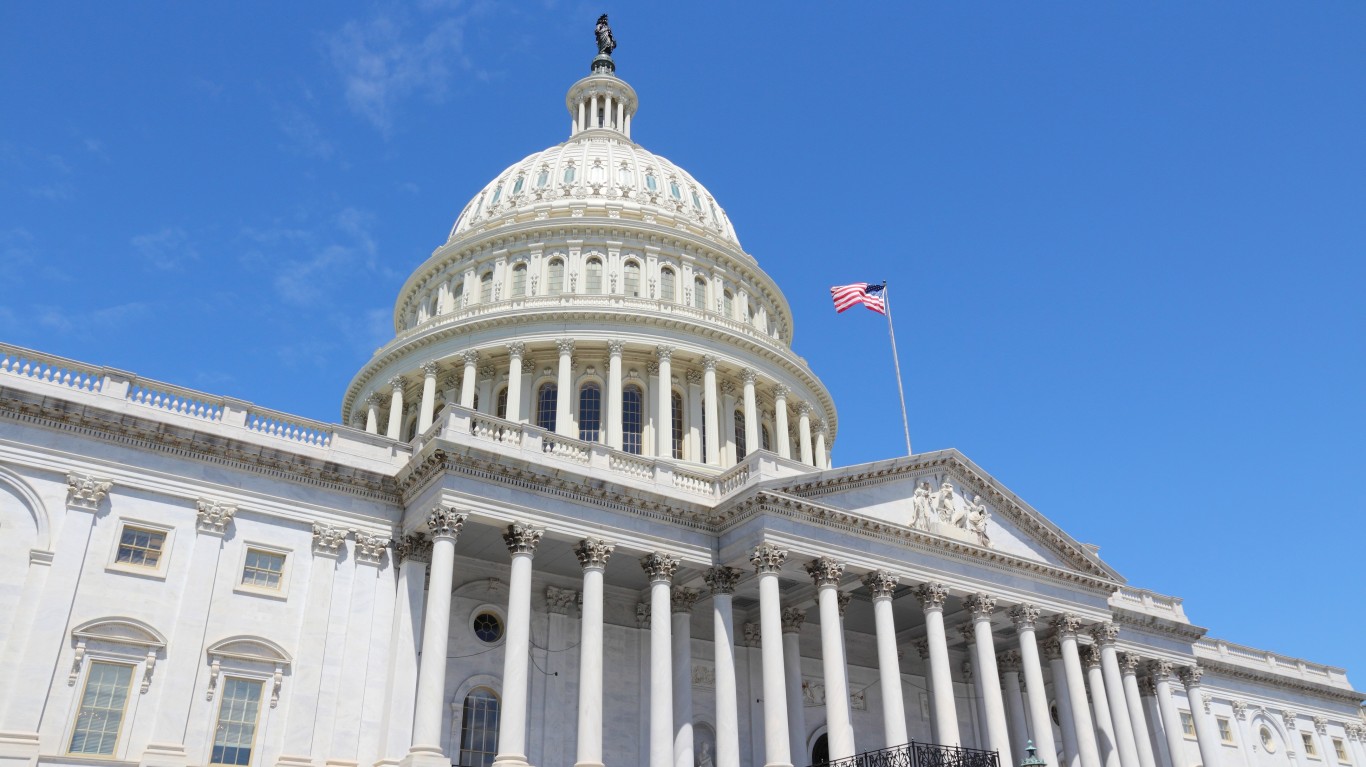Investing
Tech Takes Its Turn as Washington's Big Target

Published:
Last Updated:

The federal government has targeted major industries since at least the early 1900s when Teddy Roosevelt went up against J.P. Morgan Sr. Other huge battles between the United States and an industry range from President Kennedy’s attempt to regulate prices of big steel in 1962 to the 1982 break-up of AT&T.
Now, because of its size and influence across much of the economy, big tech has begun to take its turn as the government’s primary sector that faces investigation and possible laws restricting its power.
In just the past several days, Facebook Inc. (NASDAQ: FB) and Twitter Inc. (NYSE: TWTR) have suffered an onslaught of questions from Congress. These investigations run a range from the role tech has in free speech to the extent to which social media were used by Russia to influence the most recent presidential election. The investigations are far from over as some legislators want social media regulated because of their hundreds of millions of members, some of whom are “bad actors.”
At the same time, U.S. Attorney General Jeff Sessions has set a meeting with several state attorneys general. Among other things, the Department of Justice wants to see if large tech “may be hurting competition and intentionally stifling the free exchange of ideas on their platforms.” Furthermore, Senator Bernie Sanders has introduced a bill that is aimed at the compensation of Amazon.com Inc.’s (NASDAQ: AMZN) low-level workers. The senator is worried that many of these workers rely on federal programs to make ends meet. He is angered by the fact that Jeff Bezos has a net worth of $150 billion, which matches the net worth of a larger percentage of the U.S. population.
The management of large tech companies say they are being unfairly targeted because of the size and growth rates of their businesses. Because of this perception, the Washington battle against these companies could go on for years.
As has been true with industries pressed by Washington in the past, the anxiety among legislators is that, for example, Amazon has ruined much of the retail sector and now rules it. The theory is that this radical change has cost the traditional industry hundreds of thousands of jobs. Also, Facebook and Twitter have taken the place of traditional media as conduits of information to most Americans. Google’s search results are bent to the advantage of liberal interests, some legislators say.
One thing that is beyond argument is that big tech has become America’s largest business sector. Traditionally, this has cost industries dearly as regulation rises out of investigations. This trend has only begun.
Start by taking a quick retirement quiz from SmartAsset that will match you with up to 3 financial advisors that serve your area and beyond in 5 minutes, or less.
Each advisor has been vetted by SmartAsset and is held to a fiduciary standard to act in your best interests.
Here’s how it works:
1. Answer SmartAsset advisor match quiz
2. Review your pre-screened matches at your leisure. Check out the advisors’ profiles.
3. Speak with advisors at no cost to you. Have an introductory call on the phone or introduction in person and choose whom to work with in the future
Thank you for reading! Have some feedback for us?
Contact the 24/7 Wall St. editorial team.